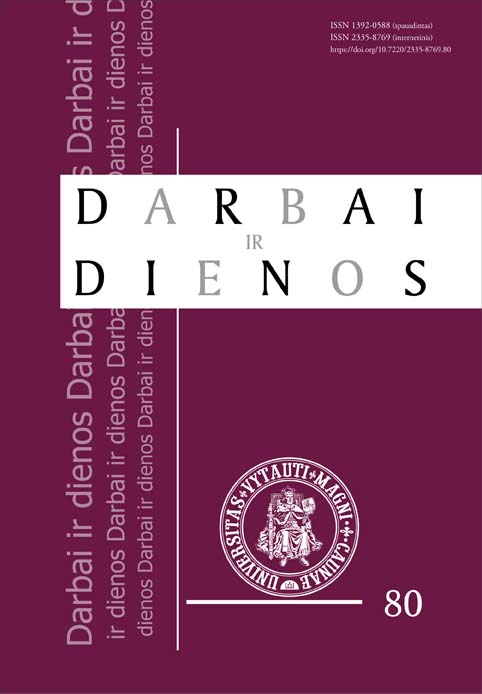Kinestetinis grožis: Friedricho Schillerio straipsnio „Apie grakštumą ir orumą“ analizė
Kinesthetic Beauty: Analysis of the Friedrich Schiller’s Article “On Grace and Dignity”
Author(s): Gediminas KaroblisSubject(s): Philosophy, Aesthetics, 19th Century Philosophy, German Idealism
Published by: Vytauto Didžiojo Universitetas
Keywords: Kinaesthetic beauty; Grace; Dignity; Friedrich Schiller;
Summary/Abstract: The article discusses Friedrich Schiller’s essay “On Grace and Dignity” and the influence of Immanuel Kant’s ideas on Schiller’s reflections. Schiller’s article begins with a recounting of a Greek myth about the girdle of gracefulness and uses it as a basis for philosophical reflections on grace. Schiller argues that human architectonic beauty is determined by nature, but it is also a cultural expression and a consequence of kinaesthetic habits. Kant and Schiller have different views on the principle of perfection in fulfilling one’s purpose as it relates to beauty. Kant seeks to purify the judgement of beauty as a rational judgement, free from sensuality, while Schiller seeks to reconcile the rational and the sensuous nature of a human. Finally, Schiller describes grace as a form of moving beauty or kinaesthetic beauty, as opposed to the static and architectonic one. Schiller distinguishes between voluntary and involuntary movements and asserts that grace is found only in involuntary movements, which arise from feeling and express an individual’s style. Grace is a fundamentally human quality and cannot be found in the movements of animals. Schiller rejects the idea that grace can be artificially constructed, as it belongs to involuntary movements. Gracefulness says more about who a person is than who she wants to be. (This summary is created with the help of AI: translated by DeepL and generated by ChatGPT.)
Journal: Darbai ir dienos
- Issue Year: 2023
- Issue No: 80
- Page Range: 61-71
- Page Count: 11
- Language: Lithuanian

